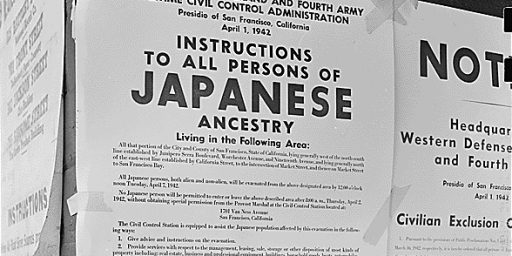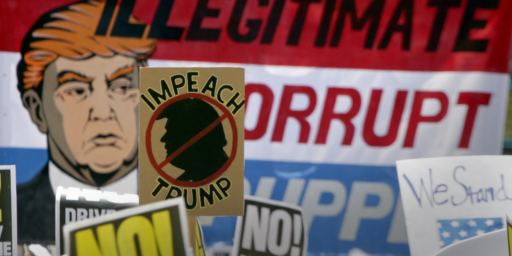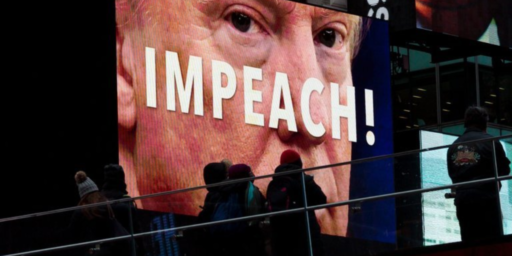The Case Against Impeaching Bush
Chris Bowers offers a detailed rationale for why Democrats should not use their newly won majority in the Congress to pursue impeachment of President Bush. Aside from the glaring omission of Bush’s not having committed any high crimes or misdemeanors, it’s a rather thorough and compelling argument.
UPDATE: It’s unfair to call it a “glaring omission,” since Bowers at least touches on the point. I should amend the last sentence to say that, “Apart from his aside that Bush ‘Probably’ committed impeachable offenses, it’s a rather thorough and compelling argument.”






Is authorizing torture a high crime or misdemeanor?
What, Bowers didn’t bother to mention them?
Truly a sad state of affairs when running our government is based on flinging some poo to see what sticks.
The case against impeachment boils down to two words: President Cheney.
Not that it would make any substantive difference than the current situation. Of course if you could knock off both quail at the same time, President Pelosi wouldn’t be a bad thing.
Pfui. I think that every president has committed impeachable offenses. Proving it is something else again.
Fortunately (or unfortunately depending on how you look at it) impeachments don’t actually require proof. They require votes and, as Mr. Bowers points out, there aren’t enough votes to convict in the Senate to remove Bush from office.
Dave, as a practical matter, you’re right. I suppose a “high crime” is whatever a majority of the House says it is.
Still, the idea that it’s a crime to cherry pick intelligence or engage in an overly executive friendly reading of vague legislation is rather silly. Lying under oath in a civil trial that the Supreme Court has ruled you must attend is much more straightforward–albeit much less important from a public policy standpoint.
Many seem to think adpoting policies contrary to your own preferences amount to impeachable offenses.
Yup. That’s why I thought the outcome on Clinton was exactly the right one: yes on impeachment, no on removal. That way there’d always be an asterisk next to his name.
I wasn’t kidding, by the way, when I said that every president commits impeachable offenses. The offenses are usually abuse of power and it goes with the territory. But the circumstances have to be just exactly right to actually result in impeachment.
Honestly, a few more percentage points in the polls and Bush will definitely be in impeachment territory. I think the implications of the precedent of two consecutive presidents being impeached by the House and acquitted by the Senate might give us pause.
I’m idealistic (or naive) enough to think that there is a meaningful distinction between criminal impeachments and political impeachments.
When a judge is removed for taking bribes, it’s really not a political issue. There are standards of corruption that are fairly universally accepted by the members of both parties, if not necessarily by some of their leaders.
When the motivation for impeachment is clearly political or policy differences, as it was for Andrew Johnson, then there is a sickness in the body politic. Clinton probably falls in this category, too; though the nominal charge of lying under oath is itself apolitical, there was a long history of the Right gunning for Clinton that puts it in a political context. And I say that as a Republican who intensely disliked Clinton.
An attempt to impeach Bush for what amounts to judging which intelligence to believe and attempting to forcefully exercise his power to prosecute the war is clearly political, even if one can come up with technical violations of law. Roosevelt’s decision to let the Army Air Forces fire-bomb Japan was brutal and hurt orders of magnitude more people than any Bush directives on detainees has done, but no one suggested impeaching Roosevelt, and rightly so.